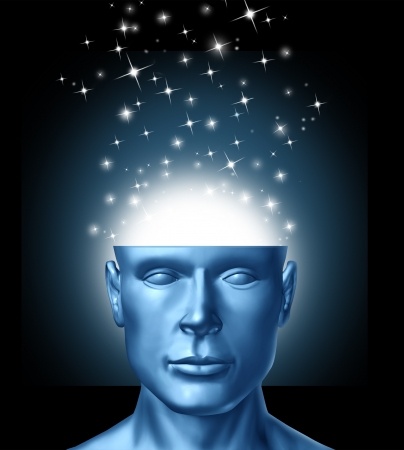« Le défi de comprendre la nature de la conscience requiert à la fois la rigueur scientifique et l’ouverture à d’autres approches complémentaires. »
Introduction
Qu’est-ce que la conscience, et quelle est sa véritable nature ? Peut-on l’étudier, et cette étude doit-elle nécessairement relever uniquement de la science ? Telles sont les questions fondamentales auxquelles cet article s’efforce de répondre. Mais pour comprendre la nature de la conscience, il convient d’abord de la définir. En effet, les termes « conscient » et « conscience » recouvrent une diversité de phénomènes mentaux, et la littérature scientifique révèle une absence de consensus quant à leur signification précise.
Doit-on parler d’activation de la conscience, comme le propose Rosenthal (1986, 1996), en s’intéressant à la perception, la mémoire ou l’attention — objets d’étude traditionnels de la psychologie cognitive et des neurosciences ? Ou s’agit-il des états qualitatifs appelés qualia, ces dimensions phénoménales accessibles par introspection ? La conscience pourrait également être envisagée comme phénoménale, c’est-à-dire comme la structure globale de l’expérience, bien au-delà des seules données sensorielles.
Quelle que soit l’option retenue, la nature subjective de la conscience rend son étude délicate et appelle une double exigence : une rigueur scientifique d’une part, et l’ouverture à d’autres modes de connaissance, notamment issus des traditions spirituelles, d’autre part.
Définir la nature de la conscience : un préalable nécessaire
Le mot conscience provient du latin conscientia, signifiant littéralement « savoir partagé », et renvoie à une connaissance immédiate, intuitive ou réflexive que chacun a de soi-même et du monde. Elle se présente ainsi comme un sentiment personnel, une expérience subjective universellement accessible mais irréductiblement singulière.
Cette subjectivité radicale pose une difficulté méthodologique majeure pour son étude : le chercheur est à la fois sujet et objet de sa propre investigation. L’étude de la conscience demande donc une vigilance épistémologique accrue et une posture réflexive continue.
L’apport des sciences dans l’étude de la conscience
La science, en tant que discipline fondée sur des méthodes rigoureuses de production de savoir, vise à établir des faits objectivables et vérifiables. En psychologie comme ailleurs, cela suppose de poser une question de recherche précise, de formuler des hypothèses, de collecter des données et d’analyser les résultats. Les neurosciences et la psychologie cognitive ont ainsi permis des avancées significatives dans la compréhension des mécanismes liés à l’attention, la perception et la mémoire.
Des expériences telles que celles sur la vision aveugle (blindsight) ont révélé l’existence de processus conscients au-delà de la seule conscience réflexive. Selon Chalmers (1995), ces avancées permettent de traiter les « problèmes faciles » de la conscience, mais laissent intact le « problème difficile » : comment l’activité neuronale peut-elle donner lieu à l’expérience subjective ?
La conscience peut néanmoins être étudiée scientifiquement selon trois angles : phénoménologique, neurophysiologique et comportemental. Mais toutes ces approches n’expliquent pas la nature même de la conscience. Comme le souligne Nagel (2012), les sciences physiques décrivent les organismes dans l’espace-temps, mais ne peuvent décrire leur vécu subjectif.
Les limites de l’approche scientifique
Malgré ses apports, la science atteint ses limites lorsqu’il s’agit de comprendre la nature de la conscience. Le domaine reste fragmenté, et les recherches scientifiques, souvent focalisées sur des objets restreints, peinent à embrasser l’ensemble du phénomène.
Metzinger (2000) souligne que les neurosciences cherchent à identifier les corrélats neuronaux de la conscience sans pouvoir expliquer pourquoi ou comment une activité neuronale devient expérience subjective. D’autres questions, comme celle de l’unité de l’expérience sensorielle ou du rôle adaptatif de la conscience, demeurent sans réponse.
Plus fondamentalement, la conscience ne peut être abordée que par l’expérience elle-même. Si toute connaissance passe par la conscience, il faut d’abord en comprendre les conditions, ce qui implique de connaître la nature de l’esprit humain. Ce paradoxe — étudier la conscience avec la conscience — rend illusoire toute neutralité complète du chercheur.
Le besoin d’un changement de paradigme
À ces limites s’ajoute une nécessité : celle de compléter la méthode scientifique par d’autres perspectives. La psychologie transpersonnelle, par exemple, permet d’envisager la conscience comme non-locale, et s’intéresse à des expériences extraordinaires telles que les NDE (expériences de mort imminente), les états modifiés de conscience ou la méditation.
Comme l’indique Lancaster (2004), il se pourrait que la conscience soit une propriété fondamentale de l’univers, et non une simple émanation du cerveau. Partant de ce postulat, la conscience serait première, la matière n’en étant qu’une manifestation.
Dans cette perspective, un changement de paradigme est indispensable : considérer l’expérience comme critère de réalité, et non plus seulement l’observation matérielle. Les traditions spirituelles — bouddhisme, chamanisme, kabbale — peuvent alors enrichir notre compréhension de la conscience.
Vers une approche intégrative
Les témoignages d’expériences spirituelles ou transcendantales, comme ceux recueillis par Alister Hardy en 1969, montrent que la conscience peut ouvrir à un sentiment de guidance, de paix ou de plénitude. Ces expériences ne relèvent pas d’une pathologie, mais d’une forme d’intelligence spirituelle aujourd’hui reconnue dans certains champs académiques.
Explorer ces aspects de la conscience est essentiel pour comprendre le besoin de transcendance, la quête de sens, et les chemins vers le bien-être ou la guérison. Les apports de la psychologie humaniste ou des traditions mystiques offrent ici des ressources précieuses.
Conclusion
La rigueur scientifique est indispensable à l’étude de la conscience, notamment pour garantir une éthique de la recherche fondée sur la neutralité axiologique. Mais cette rigueur doit s’accompagner d’une ouverture à d’autres formes de savoir.
Comme Popper l’avait proposé en son temps, il est peut-être temps de revoir notre paradigme dominant, en intégrant les apports de disciplines encore marginales, mais qui offrent des pistes prometteuses pour approcher la nature profonde de la conscience.
Bibliographie
Barušs, I. (2008). Beliefs about consciousness and reality: Clarification of the confusion concerning consciousness. Journal of Consciousness Studies, 15(10-11), 277-292.
Barušs, I. (2012). What We Can Learn about Consciousness from Altered States of Consciousness. Journal of Consciousness Exploration & Research, 3(7), 805-819.
Barušs, I. & Mossbridge, J. (2016). Transcendent mind: Rethinking the science of consciousness. American Psychological Association.
Chalmers, D. J. (1995). Facing up to the problem of consciousness. Journal of consciousness studies, 2(3), 200-219.
Hay, D. (1990), Religious Experience Today, London, Mobray
Lancaster, B. L. (2004). Approaches to consciousness: The marriage of science and mysticism. Macmillan International Higher Education.
Metzinger, T. (Ed.). (2000). Neural correlates of consciousness: Empirical and conceptual questions. MIT press.
Nagel, T. (2012). Mind and cosmos. Why the materialist Neo-Darwinian conception of nature is almost certainly false. Oxford: Oxford University Press.
Popper, K. R. (1963). Science as falsification. Conjectures and refutations, 1, 33-39.
Schwartz, S.A. (2015). Six Protocols, Neuroscience, and Near Death: An Emerging Paradigm Incorporating Nonlocal Consciousness. Explore, Vol. 11, No. 4
Van Gulick, Robert, \”Consciousness\”, The Stanford Encyclopaedia of Philosophy (Spring 2018 Edition)



